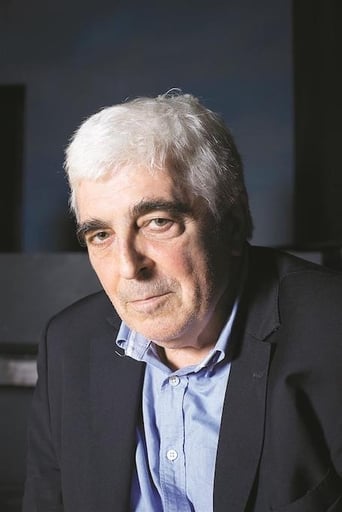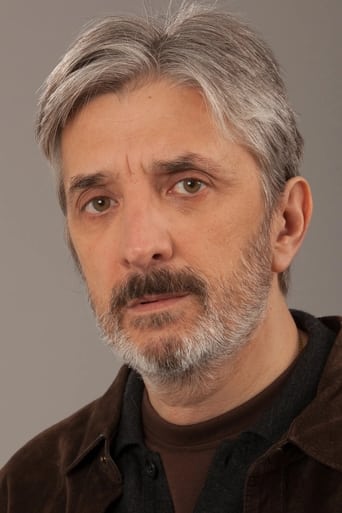SoTrumpBelieve
Must See Movie...
Mjeteconer
Just perfect...
Forumrxes
Yo, there's no way for me to review this film without saying, take your *insert ethnicity + "ass" here* to see this film,like now. You have to see it in order to know what you're really messing with.
Aubrey Hackett
While it is a pity that the story wasn't told with more visual finesse, this is trivial compared to our real-world problems. It takes a good movie to put that into perspective.
Jaimie Burguoix
Manoel De Oliveira is one of the oldest and most respected Portuguese directors - yet not especially appreciated by the general Portuguese public. This latest movie of his, directed at the age of 96, revisits a subject he's very fond of - the life of D. Sebastião. Sebastião was a very young Portuguese King of the sixteenth century, who inherited a weakened kingdom in need of a strong leader. His education was based on story-telling about ancient Portuguese conquerers, and created on him a wish to retrieve old glories. So, instead of focusing on social issues, he went on a battle on Northen Africa (Alcácer Quibir), where he would be killed. (Note: this doesn't expose the plot; in fact, it's important to understand the movie)The story isn't new to any Portuguese person, yet this movie treats it in a completely new way. The lives and deeds of kings usually restrain directors to epic movies: that is something seen. "O Quinto Império - Ontém Como Hoje" is something new. Manoel De Oliveira fully explores the psychological dimension of the myth, and he does it with mastery. In consequence, the whole movie is very theatrical, and depends greatly on actor's performances rather than on action. Indeed, it is a very still movie, in terms of physical action. However, there is immense psychological development. The plot develops in a crescendo, becoming more and more intense, suffocating the characters into insanity. Every image, every object and detail has its own meaning, progressively significant.The acting is of superior quality. Luís Miguel Cintra (who plays Sapateiro Santo) is, perhaps, one of the best Portuguese contemporary actors, and really does an outstanding job on this film. Ricardo Trêpa (who plays D. Sebastião) is a very promising actor, and all the cast is very very good. The only negative feature of "O Quinto Império" is its being a bit too long, which may send some public away.In conclusion, I'll say this is an example of quality Portuguese cinema (so lacking these days). However, it will always be underrated and treated badly - that is shameful.10/10
hapiores
In the theatrical teaser/trailer the movie was shown as the story (or part of it) of King Sebastião, a King obsessed by the memory of his predecessors and the desire of achieving the greatness they once possessed, guiding Portugal to a Portuguese empire, the Fifth Empire. However, the present kingdom is poor, the greatness of old days is gone and the wealth that Portugal once had (in the discovery days) is lost. This is the center of the movie: a character in a difficult position, playing with different thoughts and realities, to the point of not knowing reality anymore. The concept is in itself very fascinating since this is the basis of one of the great Portuguese legends: after the decision of going to war King Sebastião is tragically killed, and although he never returns to is home country it is said that one day he will appear, in a morning, coming out of the fog, leading Portugal to glory. Now,in opposition to the lyrical tale, is the king of Manuel de Oliveira (and José Régio), lost in his own mind, a man with a weakened body and soul.All the above is what the movie could be, not necessarily what it is. This is because when it comes to the chosen format for the movie everything gets of the track; it is in fact based in a theater piece, conceived by José Régio, and transposed to the cinema. Well, we all know that cinema and theater are similar in some ways but also very diverging and, for instance, whilst you have the direct confrontation of the actors with the audience in a theater piece, in the cinema the spectator is free from this pressure. That's why the director, the actors performance, the editing and the soundtrack are so determining; everything is combined to promote some kind of linking between the spectator and what he is seeing. When the representation methods are transposed directly from one to the other something get's lost; and of course, in such a restricted universe there's not much maneuver opportunities for the director. That's why the movie is so slow, so boring, why the dialogs are so thick, why the camera hardly moves (I counted one pan, apart from that everything happens just like in a theater) and why the actors almost look at the camera. The psychological depth of the character is swallowed by the format in which it is presented. Instead of a contemporary work we have something that could'v been done 50 years ago,like those traditional Shakespearean plays.Well, the theater is the theater and the cinema the cinema; and the chances were few of this being a strong movie, with the brand of Manuel de Oliveira. For those that don't know, he is a well known Portuguese director, not only in his own country but also in the rest of Europe, were he has received several awards.The fact that he has a strong reputation certainly helps promoting the movie, and it was the main thing that made me see it. However, it doesn't matter from how much different angles we look at this, the same conclusion appears: it is a poor movie.
berlinkubaner
The above said, the film is typical of its director late in his career. The 96 year old Portuguese master, said to be the oldest major director still working, is known for the above traits in most, if not all, his films in the past decade. While that style worked for me in 5 or 6 of his last 9 films I've seen, I expected more from a film billed as a historical epic. In my view, the film did little to advance my knowledge about this legendary Portuguese king, Sebastian. The synopsis read prior to my viewing gave me all the insight I still have. I learned next to nothing about this king in the 2 hours plus (seems like 3 hours) duration of the movie. The script certainly did very little to explain why he is an enigmatic legend. In fact, there is only vague reference to his upcoming battle against the heathen Muslims, the main theme the director wanted to explore in the film according to his interviews.That relevance to today's "battle" between the Christian Western World and the Muslim World is indeed timely. However, unless one is told in advance by a film festival catalog, a review, or the director's own comments, one would probably not notice this supposed statement at all. But knowing in advance, I looked for this relevant message, this connection between the sixteenth century and today in the most subtle ways. I just could not find it. I hope other users can see more in this film than I did. And if they do, please write about it.



